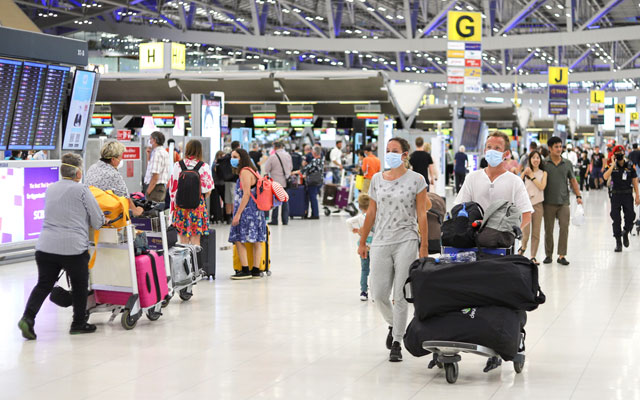While Thailand’s border remains open to all visitors, a mandatory 14-day quarantine requirement continues to keep international tourists at bay.
In December 2020, the Thai government, eager to revive the country’s pandemic-hit tourism industry, started to relax travel curbs by offering the Special Tourist Visa (STV) to all countries and visa-free travel for citizens from 56 countries, including the US and the UK. Under the STV scheme, visitors can stay in Thailand for up to 270 days.

To lure more foreign visitors, discussions were underway to reduce the 14-day quarantine period for inbound visitors to 10 days or less, with a proposal submitted to the Centre of Covid-19 Situation Administration.
However, a virus resurgence in Thailand halted all such discussions, with no further news of reduced quarantines over the past month.
On its part, the Thai government has not retracted any of its inbound tourism arrangements. For instance, UK visitors are still allowed in, despite the country battling with a new, faster-spreading Covid-19 variant. The Thai Cabinet also approved a proposal to extend short-stay visas by 15 days to allow for quarantines.
But foreign tourists are hardly flocking in. The Thailand Longstay Company, which facilitates the STV programme, told Bloomberg that on average, only 346 overseas visitors have entered the country each month on special visas since October – a far cry from the government’s target of 1,200 foreign tourists per month.
Medical tourists, welcomed since July 2020, have also arrived in very limited numbers. Bruno Huber, general manager at the Mövenpick BDMS Wellness Resort, described the programme’s market potential as “limited”, saying many patients opted to stay in their own countries rather than undergo a 14-day quarantine for short surgeries or treatments.
“The business sector pushes for border opening (without quarantine requirements) but the risk is too high. I too would like to see business return, but if anything goes wrong, we will be in a worse situation,” shared Sumate Sudasna, managing director at CDM – Conference & Destination Management.
“Personally, I believe the government is doing a laudable job. It is very hard to balance lives and livelihood. Deep down, they do want the economy to improve, but public sentiment on safety and health is so strong that any move they make is sure to be criticised and most of the time overblown,” he added.

Max Boontawee Jantasuwan, founder of Events Travel Asia, echoed similar thoughts. “It’s the public sentiment of fear putting the economy on pause,” he shared.
There are now ongoing experiments with golf quarantines, which if approved, will allow those on quarantine to move freely within designated resorts and their on-site golf courses. A wellness partnership between Thai Elite Visa and developer Nusasiri is also being trialled to draw more Thai Elite members to Thailand with the Blue Diamond Card, a 3.5 million baht membership card which affords 20 years’ visa rights, and premium health care.
As well, the Tourism Authority of Thailand (TAT) has introduced a project dubbed Amazing Thailand Happy Quarantine, which aims to showcase the country’s tourism products and services to potential visitors. It has also partnered with Thai Airways and Thai Hotels Association (THA) to push Amazing Thailand Plus packages, offering visitors value-added benefits.
Most recently, THA has joined the Association of Thai Travel Agents and the Association of Domestic Travel in calling for the government to look seriously into implementing a procedure that will allow inoculated tourists to enter the country without quarantine by 3Q2021.
Thailand tourism ended 2020 down 74 per cent, with only 6.7 million arrivals and achieving only 26 per cent of the pre-Covid projection of 3.18 trillion baht in tourism revenue.
TAT anticipates 120 million domestic tourists and 10 million foreign arrivals in 2021, with the projection for 2022 increasing to 180 million and 20.8 million, respectively.




















